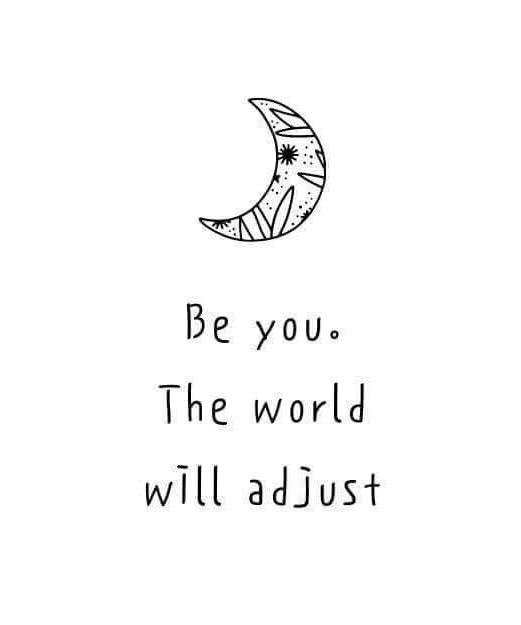We Will Feel At Ease
🎯 The Problem: For so many of us, life looks “successful” on the outside—we’ve hit the goals, faced down our share of challenges, built the relationships, and even achieved the status we thought would finally make us feel whole. And yet, there’s still that ache, that emptiness, that persistent whisper of, “Is this all there is?” No amount of accomplishment or accumulation seems to fill it. At its core, this feeling often comes from a deep disconnection from our true selves, the part of us that understands our real worth, our real purpose. Disconnected from our souls, we reach for comfort in ways that might soothe us in the short term but ultimately lead to patterns of self-destructive behavior we feel powerless to stop. 🎯 The Solution: To come back to ourselves, we have to look at how perfectionism, people-pleasing, and overthinking have shaped the way we live. These tendencies may have helped us in the past, but they often keep us locked in cycles of proving, hustling, and struggling rather than simply allowing us to be. When we begin to release these habits, we create the space to listen to our own inner wisdom—the grounded, quiet voice within that knows what truly matters. And how will we know when we’ve reconnected with our souls? We’ll feel an ease, an okay-ness, even amidst life’s chaos and uncertainty. We start to realize that true peace isn’t about controlling everything around us—it’s about knowing we are enough, just as we are.
1
0

🟡 Priorities in Sobriety
Here’s the thing: we all get the same 24 hours a day, so how we choose to spend that time matters—a lot. In sobriety, setting priorities isn’t about a long to-do list. It’s about clarifying what truly matters and reshaping your life to reflect those values. In those early days of sobriety, it’s easy to feel swamped by all the things you think you need to fix. But let’s focus on the essentials—the small, non-negotiable actions that will keep you grounded when the world feels a little wobbly. Protect Your Sobriety: Every choice should support your commitment to staying sober. When making decisions—business or personal—ask yourself, “Does this align with the life I want to build?” If it risks your stability, consider it a red flag. Connection Over Perfection: Whether at work or with loved ones, seek relationships that honor your journey. Authenticity beats perfection every time. Look for people who challenge you in a way that keeps you grounded in your values, not your fears. Self-Compassion First: Sobriety and work both demand resilience and grace. Mistakes will happen, but self-compassion makes all the difference. It lets you learn, grow, and move forward without getting stuck in shame. Grounding Routines: Your routine is your anchor. Start each day with habits that keep you centered—whether that’s morning reflection, exercise, or quiet time. Build a routine that supports you emotionally and professionally. Prioritize Sustainable Growth: Growth isn’t linear. In business and sobriety, focus on habits that nurture both, allowing room for change and celebrating every step forward. Align Business with Values: The work you choose should mirror the life you’re building. If a project or client doesn’t align, saying no is okay. Let your career reflect the authenticity and stability you’re striving for in life. Setting priorities in sobriety goes beyond just staying sober—it’s about truly embracing life. It means making choices that reflect what matters most, even in your career. When you’re clear on those priorities, you’re not just on a path to recovery—you’re creating a life and career that genuinely excites you.
1
0

🟡 The Process
In survival mode, sobriety feels like you're white-knuckling it through every hour, managing waves of emotions, cravings, and the relentless pull of old habits. This is the stage where each day can feel like you’re barely making it, and the fear of relapse lingers close by. You’re in constant vigilance, monitoring triggers, navigating the discomfort of new routines, and facing all the emotions you once numbed. It’s exhausting work because you’re learning, or relearning, how to live without the old safety net of substances and old behaviors. Things that used to feel easy now require intense focus—getting through a social situation, unwinding after work, or facing conflict head-on. Everything feels raw and, at times, painfully slow. You’re rebuilding boundaries, rediscovering who you are, and doing all this while holding a deep, often unspoken fear that one misstep could pull you back into the old way of living. In survival mode, you are doing the best that you can with self-doubt, isolation, and the weight of shame that may have accumulated over the years. And yet, this stage is also filled with strength. Every day you get through is a win, even when it doesn’t feel like one. This stage tests your resilience and demands courage like few other things in life do. And here's the thing to remember: it’s temporary. Survival mode is a phase, a bridge to the other side where you learn to not just get by but to genuinely live. As challenging as it is, this stage lays the groundwork for a life rooted in hope, authenticity, and true freedom. Moving beyond survival mode in sobriety is like waking up to life with a new set of eyes. In survival mode, you’re just trying to get through each day, managing triggers, urges, and the exhausting task of relearning how to live. You are worried that any day could be the day that you relapse. But as you move past that stage, you begin to find a more sustainable way of being with yourself. It’s no longer just about holding on; it’s about letting go of the need to protect, defend, and numb.
0
0

Alcoholism a disease?
For those struggling with alcoholism, these words might offer encouragement by providing a glimpse of hope. Alcoholism is a disease, but it’s unique in that overcoming it can lead to a better, stronger version of yourself then before the disease. Personally, I’m grateful for the journey through alcoholism because it pushed me toward sobriety, and a life in sobriety is a life fully lived. In my view, life is meant to be experienced in all its highs and lows, as that’s what makes it meaningful and complete.
2
2
New comment 12d ago

Addiction the intimacy substitute
Hi all so I believe addiction is an intimacy substitue where addiction replaces the void created when the person stops trusting people for their nurturing needs. Whats your opinion on that. https://www.youtube.com/watch?v=5UGhU6wsCYU
2
2
New comment 12d ago

1-25 of 25







